By Robert St. Martin
Glendale, California (The Hollywood Times) 03/07/2024
Currently on screen at the Glendale Laemmle Theatre is Matteo Garrone’s Io Capitano (Italy, 2023), his latest film and Italy’s Oscar bid for Best International Feature Film. It’s a type of film – usually middle-of-the-road, always well-intentioned – that’s designed to tug on the heartstrings of Oscar voters, putting a prestige gloss onto “important” stories, securing its country’s all-important ballot slot in the process. Matteo Garrone is well-known as the director of Gomorrah (2009) and Dogman (2019). Io Capitano tells the story of Seydou, a 16-year-old who leaves his home in Senegal in search of a better life in Europe.
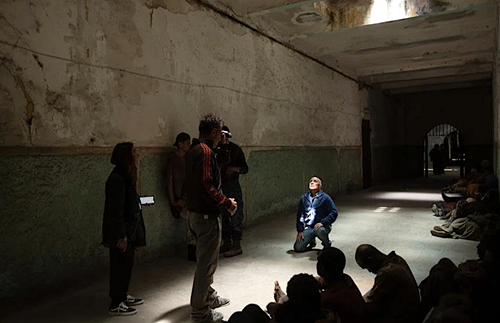
It begins in the city of Dakar, where Seydou, played by a terrific Senegalese newcomer named Seydou Sarr, lives with his mother and younger siblings. Life isn’t easy and money is tight, but there’s still a joyful and sustaining sense of community, as we see from a vibrant early scene in which Seydou plays the drums while his mother dances before a crowd. But Seydou has been dreaming of a new life for a while. Despite his mom’s protests and warnings about the dangers that lie ahead, he yearns to see the world – and earn more money to support his family.
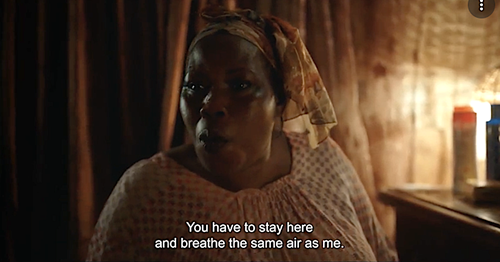
Seydou sets out with his cousin, Moussa, played by Moustapha Fall, on a trek that will take them through Mali and Niger to Libya, where they hope to catch a boat to Italy. The two cousins have been patiently saving up money for months, but their expenses mount quickly as they purchase false passports, bribe cops to avoid getting arrested and pay for an extremely bumpy ride through the Sahara Desert. At one point, the cousins must complete the desert journey on foot with several travelers, not all of whom survive – and Seydou realizes, for the first time, that he himself may not live to see his destination.
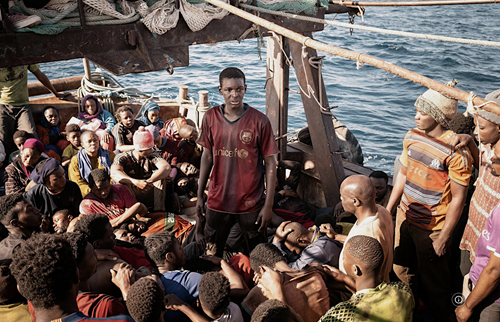
The movie is harrowing, it also has an enchanted fable-like quality with the main character Seydou being a kind of young Ulysses on a migrant hero’s journey. Garrone’s protagonists Seydou (Seydou Starr) and Moussa (Moustapha Fall) are economic migrants, inspired to leave their home in Dakar, Senegal to seek their fortunes in Europe. Garrone is careful to show that the teenagers are not fleeing abuse, or even poverty. They live full lives; they play drums and football. They have jobs which give them sufficient funds for them to save up enough money to finance their trip. Seydou lives with his widowed mother and annoying sisters.
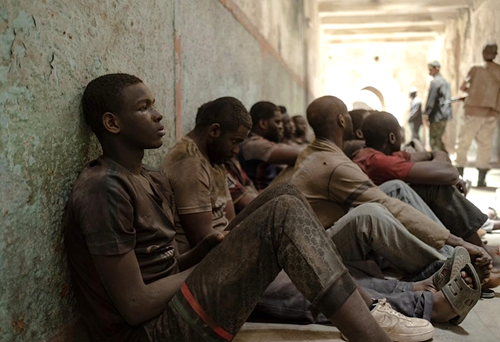
Before leaving Seydou insists that they visit a local shaman who hopefully will bless their project with the assent of their ancestors. It is a move which foreshadows Garrone’s own stylistic approach. As he follows the boys, their imaginations and dreams will go with them as well as the horrors and realism of what they encounter. On every step of the way they are drained of their money by scam artists promising them easy transit. First the bus ride only takes them so far. Then passports are faked only to be confiscated at the next checkpoint and a stark option is offered “$50 or prison.” The boys are easy prey to those wishing to exploit the desperate.
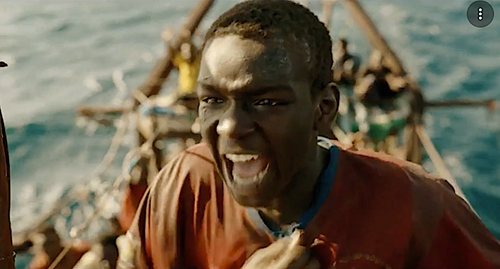
Seydou and Moussa are driven across the Sahara in jeeps which bounce across the dunes in a scene that feels almost thrilling until it becomes apparent that if any of the passengers hanging on should fall, they are dead. No one will turn around. Human life is becoming cheap. The beautiful sandscapes shot beautifully by Paolo Carnera and reminiscent of Lawrence of Arabia are punctuated by a trail of corpses. Seydou tries to maintain his humanity and even dreams of saving a woman’s life who floats above him, but worse is to come. The arrival of the dreaded Libyan security forces cart Seydou off to a hellish prison, run by the Libyan mafia.
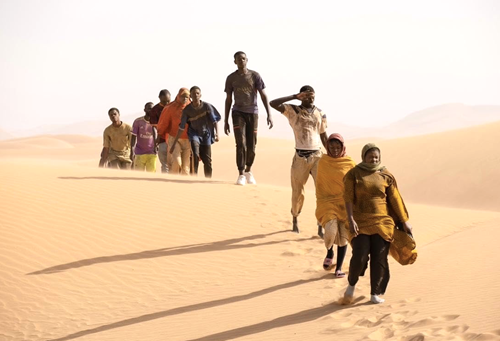
The film builds on a docudrama realism while also reaching toward the mythological. Given the challenges that many migrants face when traveling to a new land, it makes sense to assume that they’re fleeing harrowingly nightmarish realities. While Io Capitano is primarily the story of a journey, it’s also about the power of fantasy. Seydou and his cousin Moussa worked as day laborers, socking away money for their escape. Ambitious and borderline-foolish dreamers, they compose and perform catchy love songs on the streets of Dakar while planning for stardom in Europe. Seydou is the more sensitive and anxious of the two, and he lets the brashly confident Moussa tell him past the warnings they keep being given by concerned adults. “Do you have any idea of how many people died at sea?” Seydou’s mother asks, terrified after hearing his plans. “You’re so gullible.”
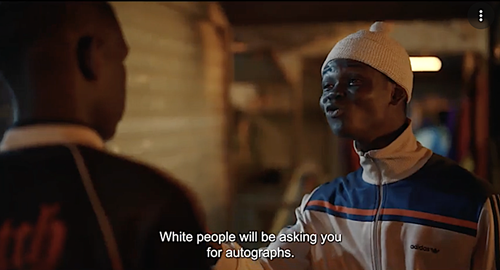
The primary purpose of a film like Io Capitano is to humanize its characters in the service of telling stories that are too rarely told in the media. Putting names and faces to immigration statistics is important, and Io Capitano does that.






